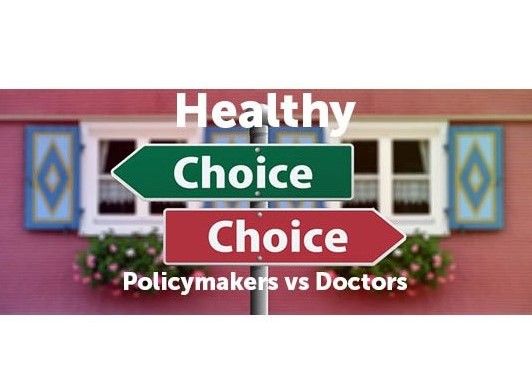Policymakers vs. Doctors
In healthcare there are often disagreements between doctors and policymakers. For example: policymakers tend to care more for the costs of healthcare, while doctors find patients more important. To get more information on this subject, the Healthy committee interviewed Jeroen Postma (section Policy and Governance at ESHPM) and a company doctor (the company can not be named due to privacy reasons).
How is policy made?
Policymaker: It depends on the subject. There are a lot of different parties involved in decision making, for example: ministries, insurers and other health organizations. All parties try to protect their own interests. A scientist would want to do more research, but there is not always enough time and money.
Company doctor: policy is made by the government and insurers. They decide which care is provided. Social affairs and the employer also play a role in which care is provided and how it is provided. This makes it a very complicated system, because doctors cannot have a direct influence in the progress.
In what way do you think policymakers and professionals collide?
Policymaker: There always seems to be a problem with money. Both sides have different interests for their income and funding of the system. The government’s main interest is to keep the system affordable. When money-related issues come forward, tension arises. Medical specialists want to do their work and get paid. Specialists do not want to waste their time with registers, while the government wants everything as precise as possible. It is always difficult that everyone looks to government for making a decision, but the government often depends on insurers and other healthcare institutions.
Company doctor: Doctors and hospitals want to do more and take care of their patients, but there is not always enough money to give the care that patients really need. The government wants to economize and seems to want to spend less on healthcare for the patients and are more focused on efficiency. Healthcare had become to expensive.
How are professionals involved in making policy?
Policymaker: Most of the time professionals have their own departments that represent them. The departments help to protect interests of doctors and hospitals. Nationally professionals have their own associations. Those associations talk on behalf of their members. Furthermore there are connections within a health organization that ensure that professionals can have a say in policy making.
Company doctor: I am involved in policy making when it is about vitality or sustainability, employability and preventive care to keep the employees healthy and fit. This is done by the company itself and not controlled by the government. Company doctors are also united in main organizations to influence policy.
What would you do differently?
Policy maker: As a manager I would try to be more involved in the working place. There remains a gap between theory and practice.
Company doctor: Personally I can influence the policy in my company. Before I started working at this company I worked elsewhere and I had less influence on policy then. There were contracts with insurers and other companies and that is why there was a limited influence. This is one of the reasons why I transferred to another company.
As you can see, money is the main issue in our healthcare system. Doctors can not provide the needed care because there is a lack of money. On the other side, policymakers still need to lower the costs to keep healthcare affordable. Regardless their differences, they also agree on some points. May this be the beginning of success!
Written by Ilze van Herten & Marit Segaar
Published: 1 February 2018
